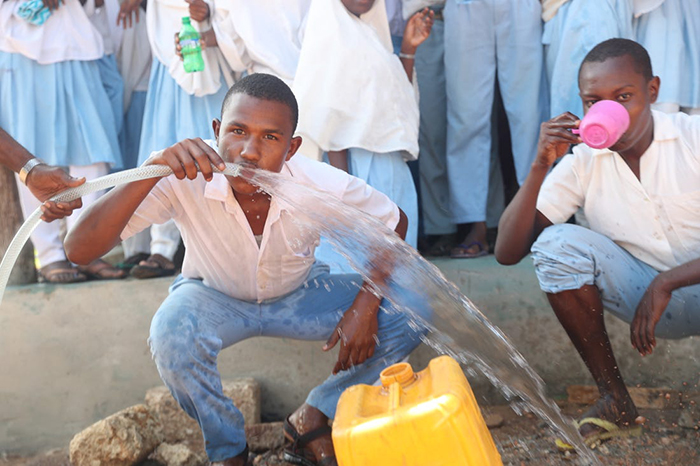- About
- Topics
- Picks
- Audio
- Story
- In-Depth
- Opinion
- News
- Donate
-
Signup for our newsletterOur Editors' Best Picks.Send
Read, Debate: Engage.
| November 12, 2015 | |
|---|---|
| topic: | Economic Opportunity |
| tags: | #Clean Energy Initiative (TCEI), #Mozambique, #power grid, #wind energy |
| located: | Mozambique |
| by: | Bob Koigi |
Only a paltry 20 per cent Mozambicans are connected to the national grid as the cost of energy remains prohibitively high for majority of households. Over reliance on fossil fuel has taken a toll on the country’s forest cover which has had an impact on the amount of rainfall the country receives. Yet the number of energy poor has been on an all-time high.
90 per cent of energy sources in Mozambique come from firewood and charcoal with a national consumption of approximately 10 million tons of firewood every year over 2 million tons of charcoal annually according to data from The Mozambican National Energy Management. Most smallholder farmers rely on sale of charcoal to supplement their meagre household incomes.
Ironically though, Mozambique is among African countries that enjoy heavy trade winds and long solar spells which are known to provide low-cost clean energy. These have been the sparks that have lit households, fanned year-round farming and kept hospitals in operation while created thousands of jobs in Northern Mozambique thanks to an idea that was birthed in 2009 by Jason Morenikeji. Jason’s resolve to light up Mozambique’s hitherto unconnected areas came when he first installed a photovoltaic solar power security light on an island off the Mozambique coast. When darkness came, the light attracted children who felt safe to play. Later people would gather around the light to catch up on the day’s happenings and within no time street vendors opened businesses. Four days later a street night market flourished guided by only one light.
The Clean Energy Initiative (TCEI) came to existence advocating for tapping into natural resources to provide clean energy especially to those in the rural areas. Premised on the principle of "zero waste", the company relies on the mass of automotive parts and scrap metals which it recycles into micro wind turbines. The local population is hired and trained in manufacturing, installing and maintaining the turbines further creating jobs. Wind blows on the blades of the turbines powering a low-speed shaft which then connects to a generator which in turn creates energy.
There are vocational training programmes that train unskilled youths and entrepreneurs how to successfully run rural-based enterprises. Small enterprises like electric barber shops, phone charging, machete sharpening, and ice-making are now a common sight in the village.
In Mipande village located North of Mozambique which is predominantly agriculture based, 95 percent of the residents rely on agriculture for survival. But failed rains and poor farming practices have put a strain on crop production, threatening the area with hunger. But a consortium of development partners are working with The Clean Energy Company, to breathe life to the area’s crops and spur new age farming through the use of the turbines. The wind and solar systems allow the use of drip irrigation in growing crops economizing the use of scarce water to ensure every crop is replenished while allowing farmers to increase acreage under food production. The 1kilowatt wind turbine and 200 watts solar array pumps over 5,500 litres of water every day and has assisted in year-round uninterrupted crop production.
But beyond agriculture, the Mipande project has opened the traditionally quiet village to small businesses and fanned a rural economy unprecedented in Mozambique. To encourage ownership of the project, part of the income the villagers get is pooled into what is christened The Clean Energy Fund, a kitty meant to cover maintenance of the energy hub and support prospective entrepreneurial projects.
Although Jason has since left Mozambique to pursue other interests, the effects of what he pioneered continue being enjoyed while inspiring more entrepreneurs into new businesses that are not only creating jobs but spurring Mozambique’s economic level from the ground up.
By copying the embed code below, you agree to adhere to our republishing guidelines.
